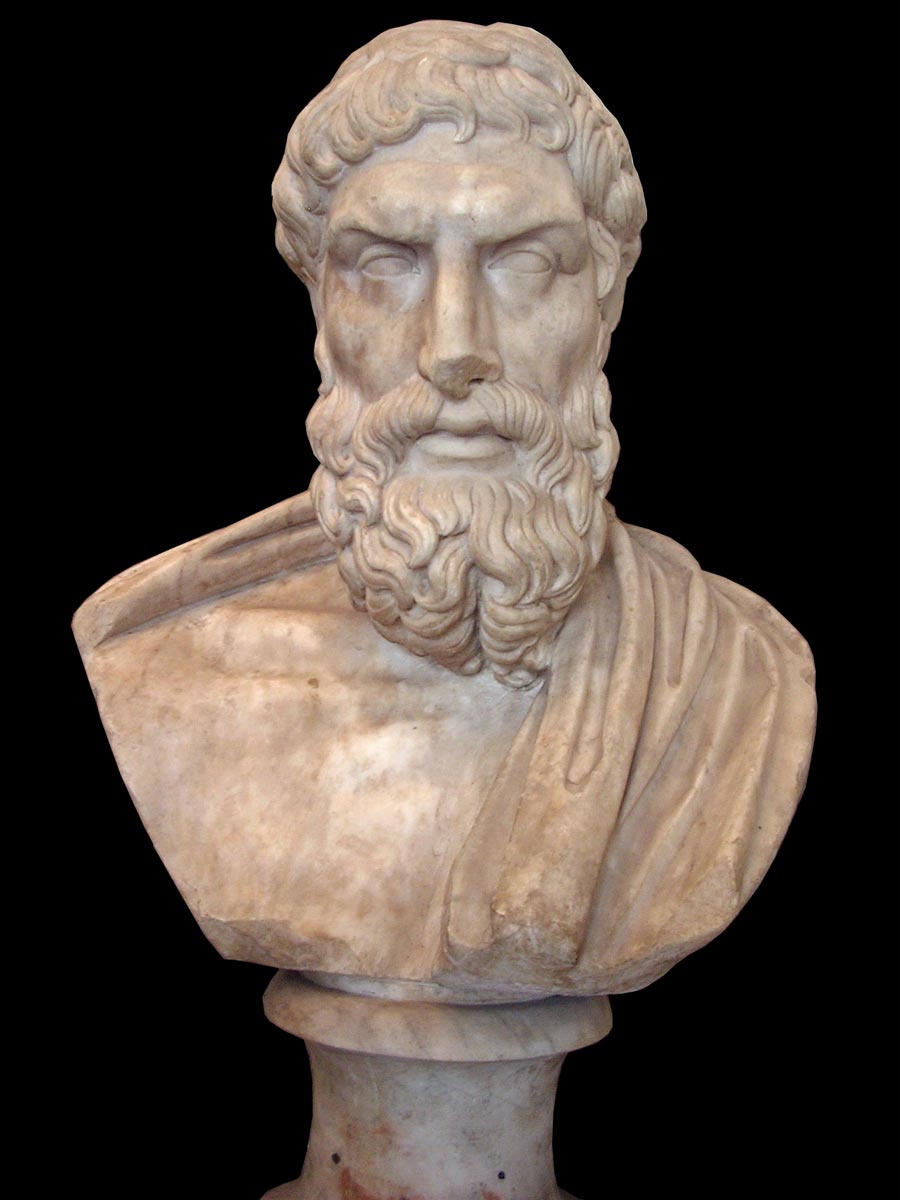The views expressed in our content reflect individual perspectives and do not represent the authoritative views of the Baha'i Faith.
Have you ever done something, purely for pleasure, and regretted it later? You just wanted to have some fun—but it didn’t turn out that way.
Just about everyone has had that universal experience, when joy turns on you.
Maybe you ate a big, lavish, delicious meal—but you over-ate, and suffered later as a consequence. Maybe you tried something physically challenging or daring—“Hey, guys, watch this!”—but injured yourself in the process. Maybe you pursued a purely physical relationship with someone you felt attracted to, but experienced the lasting emotional misery of the inevitable breakup that resulted.
It seems, in this world, like pleasure always has another side called pain.

Epicurus
That lesson wasn’t lost on the Epicureans. Today we think of an epicurean as someone who pursues sensual pleasure, especially eating and drinking—but Epicurus the Greek philosopher, who started the whole thing, had a very different view. He believed that people could discover the greatest good in life by seeking modest, moderate, sustainable pleasures, which would produce a mild state of tranquility, and consequently freedom from fear and pain. Humans would only achieve this state of happiness, Epicurus said, by limiting our desires—pretty much the exact opposite of what an epicurean represents today.
So in the ancient Greek mind, true Epicureans could only discover the highest of life’s pleasures through knowledge, friendship and living a virtuous and temperate life. Epicurus urged everyone to enjoy life’s simplest pleasures—and he did that by abstaining from bodily desires, such as sex and ravenous appetites for food and drink. In fact, his discipline came very close to the harsh denial of all pleasure that we call asceticism. Needless to say, not too many people followed Epicurus, and few do today.
Of course, everyone likes pleasure and tries to avoid pain—that’s just the way we’re built. But what does that mean for our lives in the long run? Should we devote our entire lives to seeking pleasure and avoiding pain? Is that a worthy human goal, or a shallow, selfish one?
The Baha’i teachings offer us a whole host of unique insights into this perennial human question. First, Baha’is are definitely not ascetics. The Baha’i teachings say that God has created all of the good things in the world for our enjoyment:
Asceticism is not necessary. A soul grows by the exercise of human virtues and the observance of human morals and by divine favour. The extreme asceticism of the saints was superstition. The monasticism of the Christian church was mistaken. St. Paul was responsible for much of this because in one of his epistles he praises those who do not marry and prophesied that sects would arise which would not marry. St. Paul disapproved of marriage. But God did not give us good gifts that we should reject them. He created all these blessings that His servants may bless Him. – Abdu’l-Baha, from an article in the Fortnightly Review, June, 1911, by Miss E. S. Stevens, Star of the West, Volume 5, p. 60.
On the other hand, though, the Baha’i teachings ask us to recognize an inescapable and inevitable truth: all of this world’s pleasure and pain will eventually pass away, and we will leave this physical existence behind, exchanging it for the eternal spiritual existence of our human souls:
The tribulations that have touched Us, the destitution from which We suffer, the various troubles with which We are encompassed, shall all pass away, as shall pass away the pleasures in which they delight and the affluence they enjoy. This is the truth which no man on earth can reject. – Baha’u’llah, Gleanings from the Writings of Baha’u’llah, p. 238.
In that light, are the pleasures of the physical world so important that we should devote our entire lives to attaining them? We all know that they’re temporary, no matter how good they feel. The delight we experience when we eat something delicious soon passes, and that should give us a clue about how life works: everything physical is bound by time, and time changes everything.
That’s why the Baha’i teachings, and all other serious spiritual systems, challenge human beings to transcend the present and its pleasures, and set our sights towards the future:
O son of man! If thou lovest Me, turn away from thyself; and if thou seekest My pleasure, regard not thine own; that thou mayest die in Me and I may eternally live in thee. – Baha’u’llah, The Hidden Words, p. 5.
















Comments
Sign in or create an account
Continue with Googleor